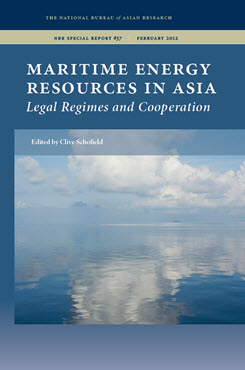Adding Further Complexity?
Extended Continental Shelf Submissions in East and Southeast Asia
This essay examines submissions to the UN Commission on the Limits of the Continental Shelf (CLCS), with particular reference to East and Southeast Asia, and assesses their impact on the already complex and contentious maritime claims in the region.
EXECUTIVE SUMMARY
This essay examines submissions to the UN Commission on the Limits of the Continental Shelf (CLCS), with particular reference to East and Southeast Asia, and assesses their impact on the already complex and contentious maritime claims in the region.
MAIN ARGUMENT
Despite the fact that the majority of coastal states in East and Southeast Asia are parties to the UN Convention on the Law of the Sea (UNCLOS), their maritime claims in many cases have proved unclear. Recently, several regional states have submitted information on their outer continental shelf limits to the CLCS. The submissions made by coastal states in the region overlap with the maritime claims of neighboring states. This is in large part a consequence of the fact that such submissions encompass areas where territorial and maritime disputes still exist, such as the maritime areas in the vicinity of the Senkaku/Diaoyu Islands in the East China Sea and the Spratly Islands group in the South China Sea. Accordingly, these submissions appear to add a further source of discord to the already highly complicated and contentious situation in the region due to preexisting territorial and maritime disputes. This view is supported by the fact that extended continental shelf submissions have incited a series of protests and counterprotests on the part of interested states. At the same time, however, these submissions, and the reactions that they have provoked from interested states, offer fresh insights and assist in the interpretation of previously unclear maritime claims. .
POLICY IMPLICATIONS
- Extended continental shelf submissions may constitute an additional source of disputes in an already complex maritime jurisdictional environment.
- The counterpoint to this negative scenario is that these submissions, and the reactions of states to them, help clarify previously opaque maritime claims.
- While the maritime claims of East and Southeast Asian states are arguably becoming more distinct through the extended continental shelf submission process, this process has also brought into sharper focus differences between the positions of claimant states.
- More clearly defining and substantially narrowing the scope of overlapping claims in certain areas could provide a firmer basis for future dispute resolution.


